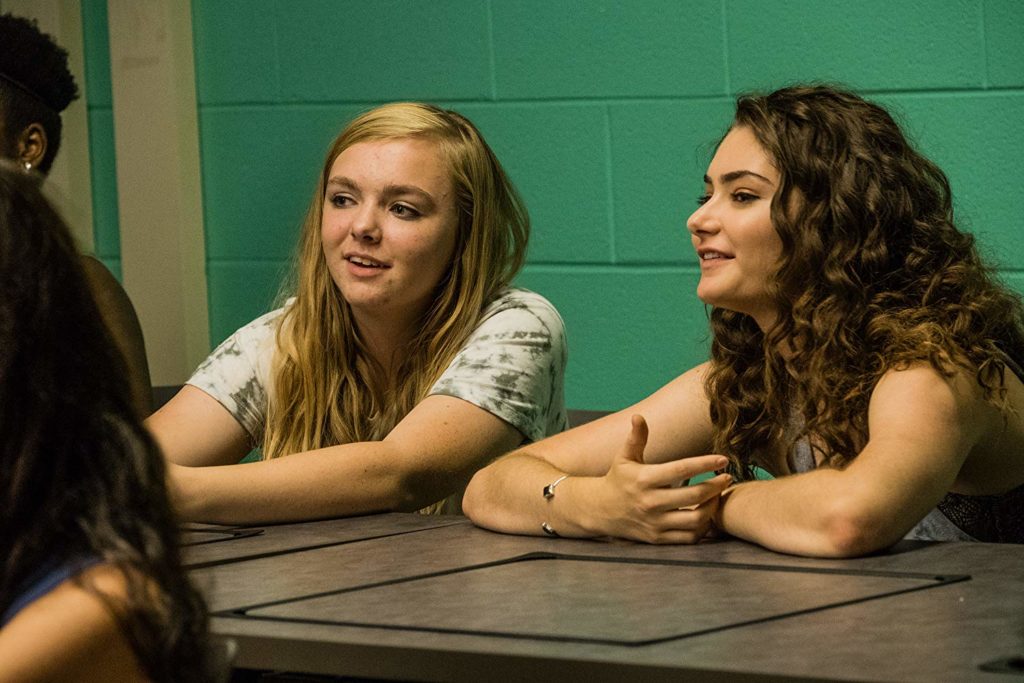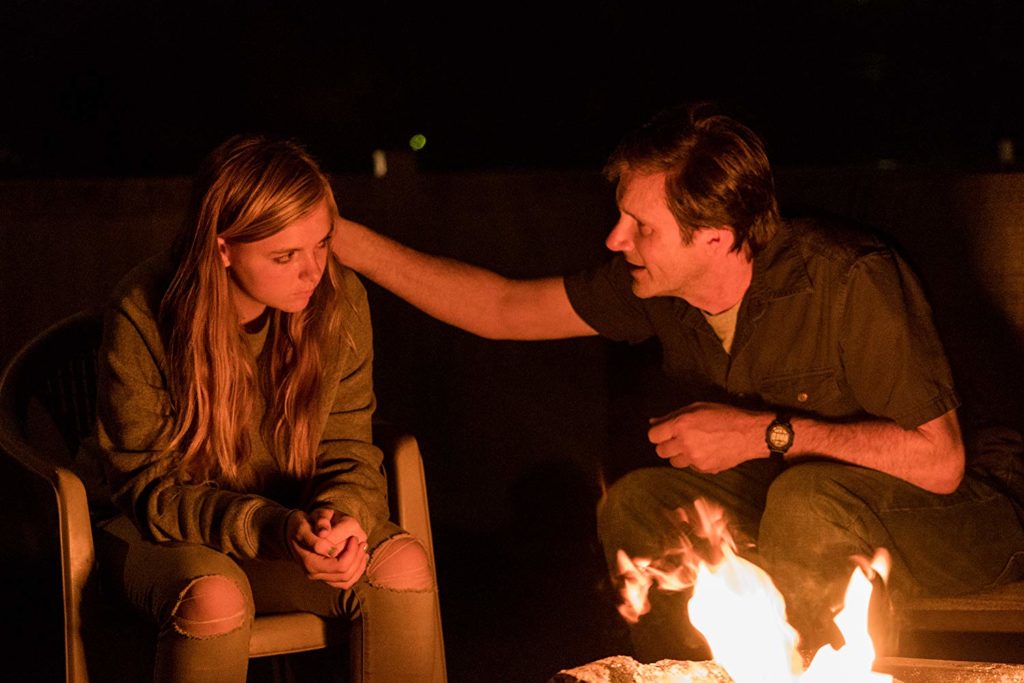For those familiar with his repertoire of ironic, wittily subversive comedy, it should come as no surprise that Bo Burnham’s first feature film is a stroke of painfully relatable genius.
Somehow managing to both encapsulate the tech-obsessed millennial lifestyle, whilst also transcending generational ideals with its charmingly honest portrayal of the teenage battles we’ve all lived through, Eighth Grade is a film that will make you cringe, cry and reminisce in deep reflection all at once.

The film follows 13-year-old Kayla Day (Elsie Fisher), a shy, socially anxious teen who is approaching the end of eighth grade (the equivalent of Year 9 to us Brits) with hopeful, if awkward trepidation. Caught up in the cloyingly introspective culture of social media, Kayla makes daily vlog posts on topics like “how to be yourself” and “putting yourself out there” as she attempts to break free from the introverted quiet girl persona that has defined her in middle school.
These vlog posts, presented as well-meaning streams of consciousness, pop up amidst Kayla’s various efforts to be more outgoing, as a way of subtly indicating how her online persona immediately reflects and deflects her real-life failures. She offers naïve life advice to her (non) audience, with a confidence she doesn’t truly possess yet, and that she struggles to adhere to in the real world. Indeed, the film’s depiction of social-media, as this all-consuming, rose-tinted space, in which people are both remarkably open and decidedly fake, is fascinating.
The film’s portrayal of social anxiety is also highly commendable. Despite her best efforts, Kayla often finds herself retreating from uncomfortable situations; be it locking herself in the bathroom after becoming overwhelmed by the imminent stress of a thriving pool party or quietly petitioning her Dad to pick her up early as she sits apart from her peers. These quiet, carefully tuned moments only make it more moving and hopeful when Kayla does manage to put herself out there, befriending new people and taking new steps to enjoying the world beyond her online sanctuary.
Kayla’s naivety, as a teenager on the cusp of learning so many adult things, is presented with humour and honesty, but also with an incredible sensitivity that feels neither condescending nor judgemental. When she looks up YouTube tutorials on ‘how to give the perfect blow job’ after unwittingly trying to impress her crush, her reactions (from banana-procuring curiosity to later semi-banana related disgust) are given the free reign they deserve. A large part of how intrinsically real the film feels is down to the respect and agency that Burnham gives his protagonist as she navigates this new ground.

It’s hard not to see aspects of yourself in Kayla, and that is a testament to how movingly and honestly portrayed she is by Elsie Fisher, the undeniable beating heart of the movie. Her performance feels effortless and genuine. Kayla is a character with whom empathy and relatability can be found almost immediately. You identify with her need for acceptance, even if you can see through her naivety. You want to protect her from the cringey, potentially dangerous moments she finds herself in and assure her of her awesomeness, because (and I’m sure I’m not alone in this) you see some of your younger self in her. If this film doesn’t have you reflecting on who you once were, who you are now, and who you could still be, it’s quite possible you weren’t paying it its due credit.
Josh Hamilton also shines as Kayla’s warm and endlessly devoted Dad, who struggles to fully connect with his daughter, particularly in the face of a teen angst that is made only more belligerent and inaccessible by the singularly focused obsession she has with her phone. His earnest attempts to reach out and offer support are as moving and wholesome as they are goofy.
There are certainly aspects that might come across as somewhat alien to audiences outside the US – the gunfire drill backdrop of an ordinary day at school was particularly horrifying to this reviewer, as was the idea of class superlatives – but for the most part, it is achingly relatable. A coming-of-age film that both defines a generation and touches on universal feelings of pre-teen doubt and confusion. It’s painful. It’s hopeful. It’s poignant. But more than anything, it just feels real.
Look out world. Bo Burnham is only getting started.
Eighth Grade is released on 26th April, distributed by Sony Pictures.
